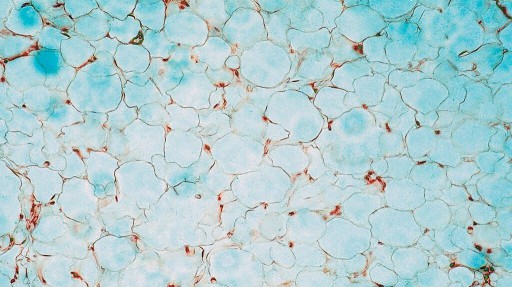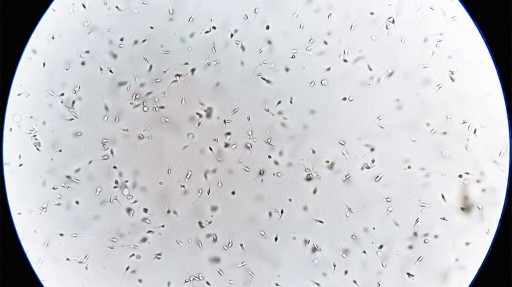
New research is reporting that children diagnosed with ADHD who are the youngest in their class are just as likely to retain the diagnosis as their older peers.
The new study, which used the largest dataset ever compiled to investigate the impact of birth month on ADHD persistence, analyzed information from more 6,500 people worldwide tracked over periods ranging from 4 to 33 years.
While experts previously questioned the validity of ADHD diagnoses in younger students, this research suggests that age within the class does not significantly affect the stability of the diagnosis.
Researchers are reporting that children who are the youngest in their class and are diagnosed with attention deficit hyperactivity disorder (ADHD) are equally likely to retain the diagnosis as their older peers in the same grade.
In the United States, approximately 8% of children are affected by ADHD.
Common symptoms of ADHD include impulsivity, lack of organization, challenges in managing time, trouble concentrating, and restlessness.
This, conducted by the University of Southampton in England and Paris Nanterre University in France, utilized the most extensive dataset ever assembled to investigate how the month of birth influences the continuity of ADHD.
The findings were published in the journal The Lancet Psychiatry.
Details from the ADHD and children study
In total, the study analyzed information from more than 6,500 subjects worldwide who were followed for durations ranging from 4 to 33 years.
Previously, some scientists had raised doubts about the accuracy of diagnosing ADHD in younger students, suggesting that they might receive the diagnosis due to their relative immaturity compared to their older classmates.
However, the researchers highlighted that children who are the youngest in their grade are often more prone to receiving an ADHD diagnosis, possibly due to their developmental lag compared to their older peers.
Nevertheless, until now, no one has investigated whether these younger children diagnosed with ADHD tend to maintain the diagnosis as they grow older.
Researchers said this study, for the first time, demonstrates that these younger individuals are not at a higher risk of outgrowing the diagnosis compared to their older counterparts.
ADHD diagnosis in younger children
According to the researchers, their study indicates that the ADHD diagnosis in children with a younger relative age is relatively stable over time.
However, the research did not allow them to determine whether this diagnosis is valid or if it might be influenced by the label itself. That’s because once a child is labeled with ADHD, parents and teachers may perceive the child as having ADHD and adjust their behavior accordingly.
Future research is needed to address this question and provide more clarity.
Medical News Today discussed the study with three experts who were not involved in this research.
The study authors thought that kids who are the youngest in their class might be erroneously diagnosed because they’re less mature than the older peers in their class. The findings that this relative age bias doesn’t seem to be a factor is reassuring. It gives us confidence as behavioral health providers that these younger children are being appropriately diagnosed and subsequently treated.
Dr. Jennifer McWilliams
“With that said, the meta analysis design of the study also opens us up to potential misinterpretation of the original data,” she added.
“To truly be confident of these findings, we’ll need to do a prospective study. Nevertheless, this is an important first step,” McWilliams explained.
He noted that it highlights previous research that identified several factors to be associated with ADHD persistence into adulthood; including severity of ADHD symptoms.
“Given the DSM-5-TR uses a threshold to diagnose ADHD, we have seen individuals who have just met the threshold and those who are just below the threshold shift in diagnostic categorization,” Pagan said.
“However, individuals with severe symptoms, even with treatment will likely retain their diagnosis into adulthood, likely due to the impairment caused,” he explained.
ADHD is a common illness that impacts a lot of people… Most of the studies (almost 80%) come from the U.S. and Europe and without racial/ethnic breakdown, [so] it may be hard to generalize minoritized children. We know that children of color are both under diagnosed and over diagnosed depending on where they live and their symptoms.
Dr. Myo Thwin Myint
Reassurance that younger children can be reliably diagnosed with ADHD
McWilliams said that these results “provide reassurance that younger patients can be reliably diagnosed with ADHD and that we aren’t mislabeling and inappropriately treating young kids.”
“Patients and families can have increased confidence and access care earlier for kids who are struggling. Hopefully this will result in improved long-term outcomes due to earlier interventions,” she said.
Myint pointed out that healthcare providers should be “mindful of relative age when diagnosing ADHD and we make sure schools and teachers are aware of it as well.”
In addition, he said it’s important to “continuously monitor and reassess ADHD symptoms even after initial diagnosis to minimize carryover effect as we also know some children do not meet ADHD criteria as they get older or they are not as impaired to the point of needing medication and treatment.”
Pagán, agreed, saying that “researchers, clinicians, and teachers (or anyone working with individuals with ADHD or suspected ADHD), should be careful to compare the behaviors of children/adolescents being rated to neurotypical individuals rather than individual’s age or another category that may be available.”
“Additionally, they should be careful to maintain a diagnosis only with sufficient evidence. For example, a diagnosis of ADHD should not be maintained simply because it was diagnosed in the past,” he added.





